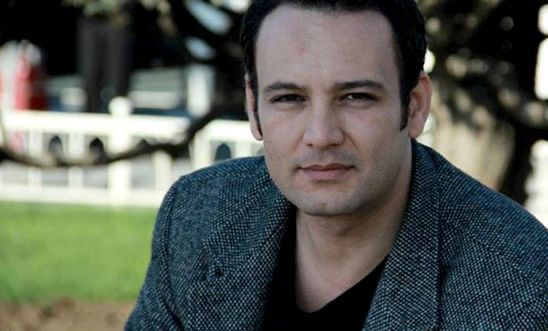The Power of Information in the Syrian Revolution: In Conversation with Rami Jarrah
- Nour Kachi

- Jul 1, 2024
- 29 min read
Updated: Jun 27, 2025
Rami Jarrah is a Syrian political activist who played a major role in exposing the Syrian regime’s war crimes during the 2011 Syrian Revolution. During a time when international journalists were not allowed in Syria, Rami operated under the alias of ‘Alexander Page’, where he would document the war crimes committed by the Syrian government and share them on social media and to news outlets around the world. His bravery and fearlessness played a major role in exposing the truth on the ground, leading to him being awarded an International Press Freedom Award in 2012 from the Canadian Journalists for Free Expression.
CJLPA: Welcome, Mr Rami Jarrah. I’d like to begin by thanking you for taking the time to come and interview with The Cambridge Journal of Law, Politics, and Art to discuss your story as a political activist and a human rights defender. I want to start with your life prior to your birth, by looking at the life of your parents. Your father, Nouri al-Jarrah, was a longtime Syrian dissident to the Baath party. On the other hand, your mother Lena Tibi was a member of the Syrian National Council, working as a representative of the opposition movement against the Syrian government. Your parents were eventually exiled out of Syria and they lived in Lebanon, maybe around the late 1970s. Can you please tell me about the events that led to them being exiled from Syria?
Rami Jarrah: For my mum, it’s much more straightforward. She actually grew up in Lebanon. She was a poet and my dad was also a poet. The sort of activities they were involved in were not exactly liked by the Syrian regime or the political elite. My dad, who grew up in Syria, was a part of the Communist Party, which during that time was headed by Khalid Bakdash. What happened at the time was that Hafez al-Assad declared unification, which was basically bringing all the political parties together, and one of the parties that joined the unification was the Communist Party. People like my dad and I think many figures of the Syrian opposition considered that move to be a political game that Khalid Bakdhash himself signed up for. So they defected from the party. I don’t think it was really a very public defection, but it was really just: ‘okay, this party doesn’t represent us’. My dad left the party, I think you’re correct in saying towards the end of the 70s, or maybe just the beginning of the 80s, and he went to Lebanon.
I actually heard the story from my grandma the first time I ever went to Syria. When I sat with her, she had not seen my dad in like 25-30 years. She said: ‘he told me he was going to buy parsley and she hasn’t seen him since’. He didn’t want her to worry, but he basically left because anyone who opposed that unification was basically in trouble in Syria, anyone that would write their opinion on what was going on, like the massacres that took place in all of Syria, but mainly in Homs. There were people in the Communist party; although it is painted as this attack by the dictatorship in Syria or by a fundamentalist Islamic community, which to some extent can be justified or not the attack itself. It was, to some extent, explained as an Islamic movement, but at the time, it was supported by people in the Communist Party, because it was in opposition to a dictatorship. That’s the one thing they had in common at the time, the Communist Party and people in the Muslim Brotherhood and whatnot. Even in 2011, you had people who were secularists, people who have religion. It’s something that they all have in common recently, as well; that they all oppose the government. That might not seem like a good enough reason for people with totally different opinions or totally different backgrounds to come together. For someone who lives in Syria, I understand why that was a good enough reason. My parents before they went into adulthood had no longer any relation or connection to Syria and they ended up living in Lebanon, then during the Lebanese civil war moving to Cyprus.
CJLPA: I want to fast forward now to the times of Hafez al-Assad, before the 2000s. Hafez al-Assad’s era is not really documented. There was a complete media blackout in Syria and state propaganda was very strong at the time. How would you describe Hafez al-Assad’s rule to people who are not aware?
RJ: One thing that was distinctive from the rule of his son, Bashar al-Assad, is that Hafez al-Assad had created a system in which he was in direct contact with every critical facility or organisation in Syria. For example, in the Palestinian branch the head of the branch would be in direct contact with Hafez al-Assad. He had direct contact with some of these institutions or organisations. For example, this is hearsay, a street cleaning company, the head of that organisation will be in direct contact with Hafez al-Assad. The head of the electricity department in Damascus would be in direct contact with Hafez al-Assad. The train institution and department will be in direct contact with Hafez al-Assad.




